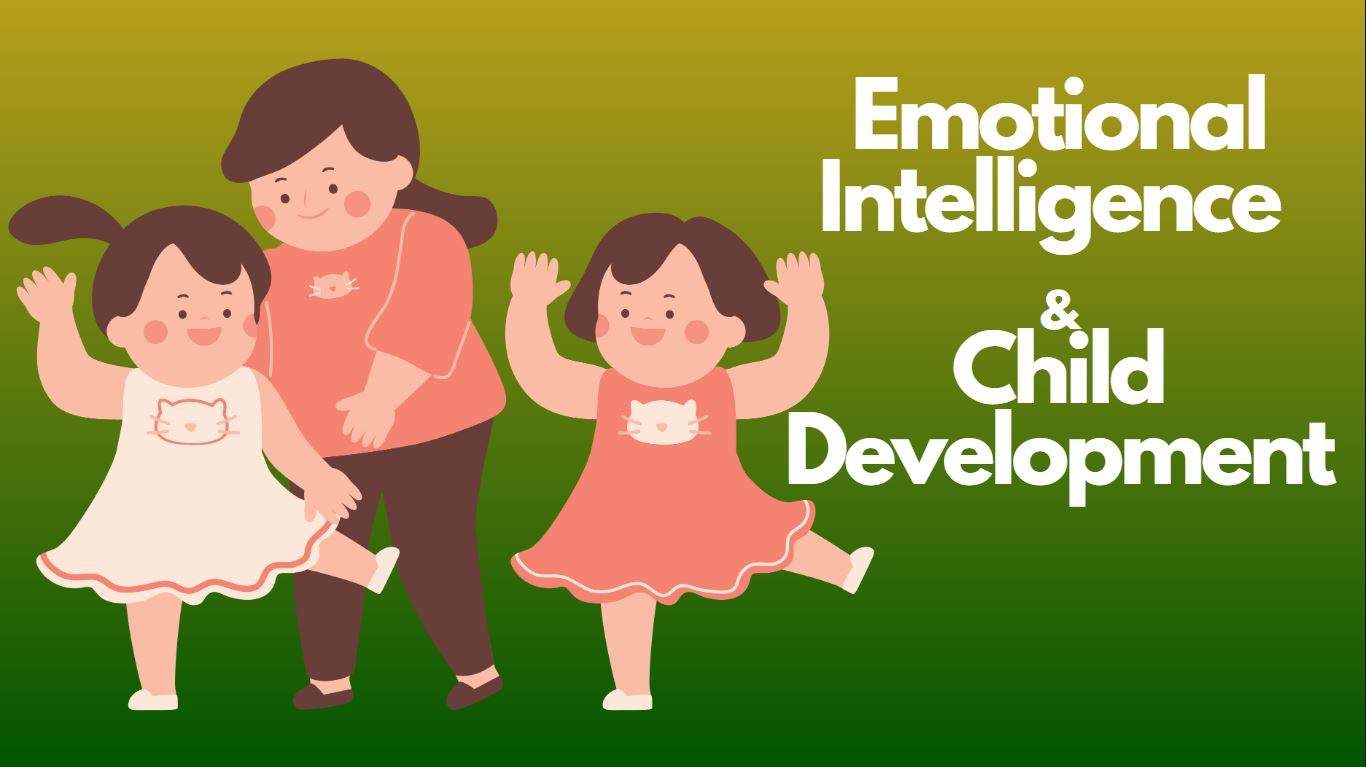- Likes
- Followers
- Followers
- Followers
- Subscribers
- Followers
- Members
- Followers
- Members
- Subscribers
- Subscribers
- Posts
- Comments
- Members
- Subscribe
The Role of Emotional Intelligence in Child Development

Emotional intelligence in child development plays a pivotal role in the life journey of the kids. It helps in their journey to becoming a well-rounded, empathetic, and socially skilled individual. In this article I’ll explores what emotional intelligence is, why it’s crucial for child development, and how parents and educators can nurture it.
What Is Emotional Intelligence?
Emotional intelligence refers to the ability to recognize, understand, manage, and effectively use one’s own emotions while also being sensitive to the emotions of others. It can be understood using four parts as below-
Self-Awareness: Self awareness is the capacity to recognize and understand completely your own emotions and analyze how they affect your thoughts and behavior.
Self-Management: Self management is the skill to manage and regulate emotions effectively, including handling stress and controlling impulses. Self management also encourages to have self discipline in your life.
Social Awareness: Social awareness is the ability to understand the emotions and needs of others, fostering empathy and better interpersonal relationships. This eases the conflicts in relationships.
Relationship Management: The competence to navigate social situations, resolve conflicts, and communicate effectively with others come under relationship management.
Why Emotional Intelligence Is Important In Child Development?
Enhanced Social Skills: Children with high emotional intelligence tend to have better social skills. They can build strong, healthy relationships and collaborate effectively with peers and adults.
Improved Academic Performance: Emotional intelligence contributes to better classroom behavior, enhanced problem-solving skills, and improved academic performance.
Better Mental Health: Developing emotional intelligence helps children cope with stress, anxiety, and emotional challenges, leading to better mental well-being.
Empathy and Compassion: Children with higher emotional intelligence are more likely to be empathetic and compassionate toward others. They can understand and respond to the feelings and needs of their friends and family.
Posts You May Like
Conflict Resolution: Emotional intelligence equips children with the skills to resolve conflicts peacefully and constructively, reducing the likelihood of bullying and aggressive behavior.
How To Nurture Emotional Intelligence In Children?
Model Emotion Regulation: Children learn by observing. Parents and teachers should demonstrate healthy ways to manage emotions, such as talking through problems and demonstrating how to bounce back from the adverse situations.
Encourage Expression: Create an environment where children feel safe expressing their emotions. Once they start expressing their emotions, it will boost their confidence in themselves and their family. Once you start encouraging them to talk about their feelings and experiences, they will start building positive side of life and it will never feel them lonely.
Teach Empathy: Discuss emotions and their impact on others. Encourage children to consider how their actions affect those around them. Empathy is developed through compassion which is fostered through emotional intelligence.
Problem-Solving: Help children develop problem-solving skills by discussing issues, brainstorming solutions, and implementing them. Once they develop problem solving mindset, they will start seeing the positive side of all aspects of life situations. They can balance themselves in every odd and off situations.
Practice Active Listening: Show children the importance of listening actively when someone shares their feelings. This teaches respect and understanding. Once active listening power is developed, they will start analyzing the things positively.
Use Literature and Media: Read books and watch shows or movies that explore emotional themes. Discuss the characters’ feelings and the outcomes of their emotional choices. Literature and media are the powerful tools once used meaningfully.
Emotion-Focused Play: Engage in activities that focus on emotional expression, like drawing feelings or creating stories about different emotions.
In Conclusion
Emotional intelligence is an important side of child development. It equips children with the tools they need to navigate the complexities of life, develop meaningful relationships, and succeed academically. By nurturing emotional intelligence, parents, teachers, and family members can empower children to become emotionally aware, socially adept, and resilient individuals.
Image Design Credit- Canva


Comments are closed.